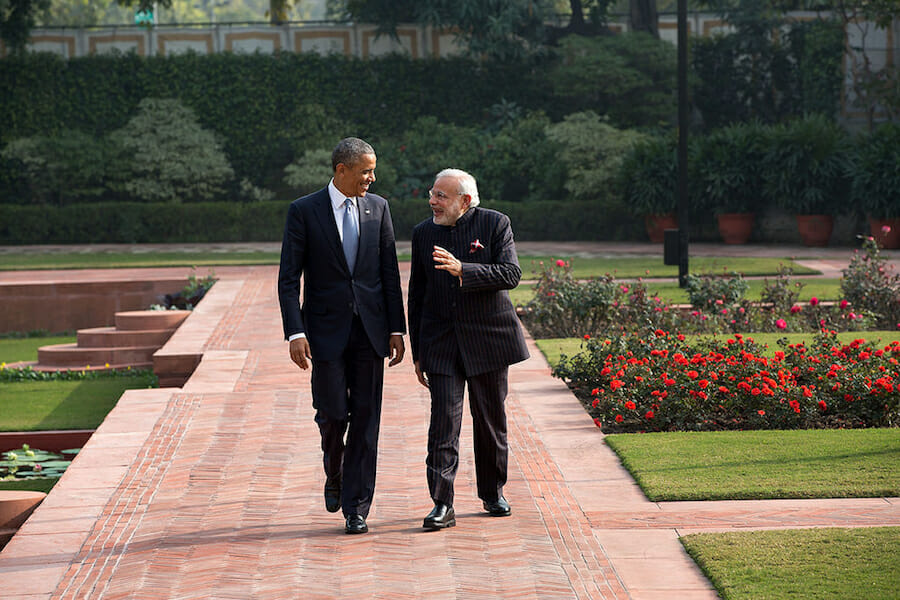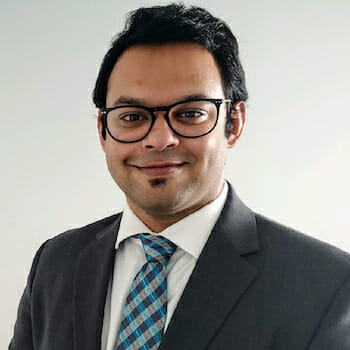
Culture
Democracy, not Religion, should be Obama’s Message to Modi
India’s Prime Minister Narendra Modi and religion are inseparable. The reasons are not unfounded. As the premier of India’s Gujarat province, he was accused of turning a blind eye to communal riots committed by ultra-Hindu nationalists against Muslims. The court exonerated him anyway. Yet the ensuing controversy was so pervasive that it made Washington blacklist Modi from entering the United States. This remained unchanged until last year as Modi’s Bhartiya Janata Party (BJP) scored a sweeping victory in the national poll. And last month the leader of the free world embraced him with open arms. If it’s any indication, things have changed.
Narendra Modi is widely seen as a miracle man expected of replicating his successful Gujarat economic model in the rest of India. In power politics, he is regarded as a lynchpin in countering an assertive China. Still, one thing remains the same: Modi’s unflattering reference to religion.
During his recent trip to India, Barack Obama’s remarks in an address to Indian youth resuscitated that notion. The White House, however, tried to play it down depicting the president’s comments as an emphasis on core democratic values that both the United States and India share. Days later Obama voiced his concern again over “acts of intolerance” in India. Fair enough. India is, in fact, seeing a growing number of incidents that badly affect religious harmony. Nevertheless, Obama should have placed a premium on India living up to its democratic values.
India is the largest democracy in the world. Leaders not coming from established political dynasties like the Gandhis are well capable of making history by securing some of the highest offices in the nation. Narendra Modi himself is an example of that. This is incredible for a country where family connections matters. Yet just underneath the veneer of democracy, there lies a troubled India. Rights, whether religious, human or women’s rights, are being trampled on. Religion, in particular, is being grossly politicized and denies millions their freedom to practice their own faiths. This is the reason why Modi’s ascendance to power gives the RSS, the youth wing of the BJP, a morale boost to convert millions into Hinduism. Democracy sustains diversity. This is why Modi’s party and its affiliate’s are met with disdain both at home and abroad. However, Modi spoke up this week to pacify a growing sense of insecurity among India’s Catholics. This is a good omen. After all, the prime minister of a country that is the birthplace of several influential religions cannot remain silent.
What Modi needs to concentrate on is preparing India to exert its democratic forces both at home and abroad. India has the tools and leverage to help her neighbors remain on the path to democracy. Instead, India is doing more harm than good. Rumors abound of India’s direct influence in defeating Sri Lanka’s incumbent President Rajapaksa in the general election held last month. India is gradually losing its influence in Nepal due to her continuous meddling in Nepalese internal affairs and many politicians claim that Delhi interfered in crafting their constitution.
In 2008, India openly supported the Shushil Koirala’s government. This was not the only time India lost face. In 2012, India hailed then newly-elected Maldivian President Mohammed Waheed, but quickly took a U-turn and supported the ousted President Nasheed who lost in the next election. In order to understand India’s myopic actions, Bangladesh provides the best example. India continued to support Sheikh Hasina’s government even after she retained power through a “sham election.” Currently, Bangladesh is experiencing its worst political violence in years as the opposition called for nationwide protests to topple the Hasina government.
India’s sleight-of-hand policy does not always yield the desired outcomes. India cannot afford to see her influence diminished in South Asia since China’s increasing presence is felt across the region. But the way India is trying to maintain its “big brother” status runs counter to her very democratic values. India is willing to court quasi-democratic governments in the region as long as India believes this will protect her interests. In the end, India is perpetuating political instability in some neighboring countries and angering their citizens.
Indian leadership should keep in mind that China’s extraordinary ability to pump billions of dollars into neighboring countries cannot be easily matched. Therefore, India should remain firm in promoting democracy. This is because the people of South Asia are awakening and democracy is the ultimate solution for many. It is high time for Narendra Modi’s populist government to recognize this. In this regard, Barack Obama should encourage Modi to take the lead and show the world that India’s democracy should be spread throughout the region.

